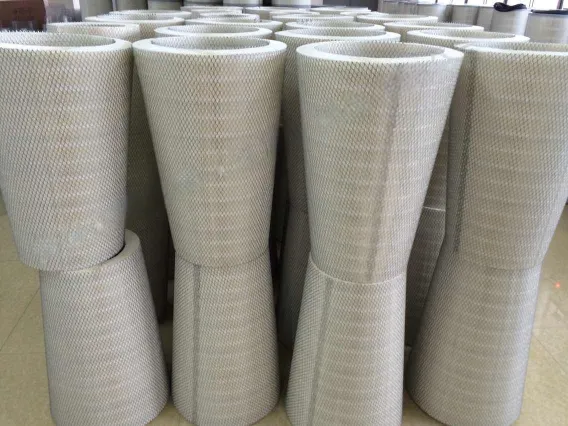 Tel:
+8615930870079
Tel:
+8615930870079
Dec . 02, 2024 02:53 Back to list
Selecting the Right Cartridge Type Air Filters for Your HVAC System
Understanding Cartridge Type Air Filters A Comprehensive Overview
Air quality is a crucial aspect of our environments, particularly in industrial, commercial, and residential settings. One effective solution for controlling dust and particulate matter is the usage of cartridge type air filters. These filters play an essential role in ensuring clean air and maintaining the efficiency of HVAC systems. In this article, we will explore the design, function, types, advantages, and maintenance of cartridge type air filters.
What is a Cartridge Type Air Filter?
A cartridge type air filter is a compact filtration device that utilizes a cylindrical or conical design to capture airborne particles, including dust, pollen, smoke, and other pollutants. These filters are typically made from a combination of materials, including synthetic fibers, activated carbon, and paper. Their design allows for a high surface area, which enhances their filtration capabilities while minimizing resistance to airflow.
How Cartridge Filters Work
The operation of a cartridge air filter is straightforward. As air flows through the filter, impurities are trapped on the surface and within the filter media. The filtration process can be classified into several stages
1. Inertial Impaction Larger particles collide with the filter media and get trapped due to inertia. 2. Interception Smaller particles that follow the airstream tend to adhere to the filter fibers. 3. Diffusion Very small particles move erratically and are captured as they collide with the filter media.
This multi-faceted approach allows cartridge filters to effectively capture a wide range of particle sizes, making them suitable for various applications.
Types of Cartridge Air Filters
Cartridge filters come in various designs and materials, catering to specific needs and environments. Here are some common types
1. Pleated Cartridge Filters These filters feature pleated designs that provide increased surface area, enhancing their dust-holding capacity and lifespan. They are widely used in HVAC applications.
cartridge type air filter

2. HEPA Filters High-Efficiency Particulate Air (HEPA) filters capture 99.97% of particles that are 0.3 microns or larger. They are ideal for environments that require superior air quality, such as hospitals or laboratories.
3. Activated Carbon Filters These filters are designed to absorb odors, gases, and volatile organic compounds (VOCs). They are often used in conjunction with other filter types to enhance air quality.
4. Synthetic Filters Made from synthetic materials, these filters are durable and resistant to moisture and microbial growth, making them an excellent choice for humid environments.
Advantages of Cartridge Type Air Filters
Cartridge type air filters offer numerous advantages
- Space Efficiency Their compact design allows for easy installation in limited spaces. - Higher Filtration Capacity With a larger surface area, these filters can hold more dust and particles compared to traditional filters, leading to longer replacement intervals. - Lower Resistance to Airflow A well-designed cartridge filter minimizes pressure drop, resulting in improved energy efficiency for HVAC systems. - Versatility Available in various types, they can meet different filtration requirements across industries.
Maintenance and Replacement
To ensure optimal performance, regular maintenance of cartridge air filters is essential. Here are some key practices
1. Visual Inspection Periodically check the filter for dirt accumulation and any signs of damage. 2. Cleaning Some filters can be cleaned and reused, while others must be replaced. Always follow the manufacturer’s guidelines. 3. Scheduled Replacements Routine replacement based on usage and air quality conditions will keep systems running efficiently.
Conclusion
Cartridge type air filters are critical components in maintaining air quality across various settings. Their efficient design, along with their ability to capture a wide range of particulates, makes them a preferred choice for many applications. Understanding their types, functions, and maintenance requirements can help ensure that these filters perform optimally, providing cleaner air for all. Whether in industrial plants, commercial spaces, or residential homes, investing in the right cartridge type air filter is a fundamental step toward healthier air quality and enhanced system performance.
-
Nano Fiber Technology: Revolutionizing Cartridge Dust Collector FiltersNewsAug.06,2025
-
How Activated Carbon Air Cartridges Eliminate OdorsNewsAug.06,2025
-
Dust Filter Cartridge Handling Fine Particulate MatterNewsAug.06,2025
-
Cartridge Dust Collector Filter for Welding Fume ExtractionNewsAug.06,2025
-
Activated Carbon Filter Cartridge Effectiveness Against VOCsNewsAug.06,2025
-
Activated Carbon Air Filter Cartridge Benefits ExplainedNewsAug.06,2025

 Email:
Email:





